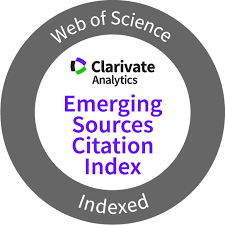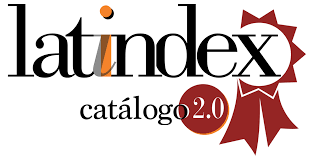Environmental Branded Podcasts.
Challenges and opportunities in the face of the ecosocial crisis
DOI:
https://doi.org/10.5783/revrrpp.v14i28.873Keywords:
environmental communication, social responsibility, strategic communication, ecosocial crisis, climate change, podcast, environmentAbstract
This study examines branded environmental podcasts as a strategic communication tool for Social Responsibility (SR) in response to the growing concern over the ecological crisis. These podcasts enable organisations to align with societal concerns about socio-environmental challenges while establishing a more authentic connection with their audiences. Through an exploratory and descriptive approach, the research employs an in-depth interview and a mixed content analysis of 88 Spanish-language podcasts hosted on Spotify. The findings reveal that companies, NGOs, and universities are the primary producers of these podcasts, with a notable surge in their creation between 2020 and 2023, particularly following the COVID-19 pandemic. Among the producing countries, Spain, Colombia, and Mexico emerge as leaders in the development of branded environmental podcasts. Key topics addressed in these productions include climate crisis, sustainable resource management, and renewable solutions, reflecting the pressing environmental issues of our time. The analysis identifies a correlation between the type of organisation and the podcast’s recent activity, showing that companies and universities tend to maintain their podcasts more actively compared to public organisations or think tanks. Furthermore, podcasts referenced on the organisation’s official website are more likely to remain active, indicating that their integration into broader organisational communication strategies contributes to their longevity. This demonstrates that when podcasts are embedded within a cohesive communication framework, they not only sustain activity but also enhance the organisation’s ability to convey consistent messaging. Branded environmental podcasts offer several advantages. They strengthen organisational reputation, foster the creation of engaged communities, and demand fewer technical resources compared to other media formats. However, they also face significant challenges. One major obstacle is their niche focus, which can limit their ability to attract large audiences. Another is the risk of being perceived as engaging in greenwashing if the podcast’s content is not aligned with the organisation’s actual practices. This inconsistency can undermine credibility, particularly in an era when stakeholders demand greater transparency and accountability. Additionally, the increasing use of artificial intelligence (AI) in podcast production presents a new challenge. While AI can enhance technical quality and streamline processes, it may also raise concerns among audiences about the authenticity of content, particularly regarding the use of AI-generated voices or scripts. This could detract from the personal and relatable nature that makes podcasts a unique medium for communication. In conclusion, branded environmental podcasts represent a valuable yet underexplored tool for organisations seeking to address socio-environmental concerns and engage meaningfully with their stakeholders. To maximise their impact, these podcasts must be integrated into comprehensive communication strategies, ensuring coherence with organisational values and practices. By doing so, they can overcome challenges, enhance trust, and position organisations as credible advocates for environmental sustainability in an increasingly eco-conscious world. This work has been funded by the Ministry of Science, Innovation and Universities.
Downloads
References
Aguado, M., Calvo, D., Dessal, C., Riechmann, J., González, J., A., & Montes, C. (2023). Por un enfoque ecosocial para el estudio de la vida Buena. PAPELES de relaciones ecosociales y cambio global, 161, 11-25. https://www.fuhem.es/papeles_articulo/por_un_enfoque_ecosocial_para_el_estudio_de_la_vida_buena/
Aras, G. y Crowther, D. (2008) Governance and Sustainability: An Investigation into the Relationship between Corporate Governance and Corporate Sustainability. Management Decision, 46, 433-448. http://dx.doi.org/10.1108/00251740810863870
Araujo, T. y Kollat, J. (2018). Communicating effectively about CSR on Twitter: The power of engaging strategies and storytelling elements. Internet Research, 28(2), 419-431. https://doi.org/10.1108/IntR-04-2017-0172
Atarama-Rojas, T., & Vega-Foelsche, D. (2020). Comunicación corporativa y branded content en Facebook: Un estudio de las cuentas oficiales de las universidades peruanas. Revista de Comunicación, 19(1), 37-53. https://doi.org/10.26441/rc19.1-2020-a3
Barrio-Fraile, E., Barbeito-Veloso, M. L., Fajula-Payet, A., Perona-Páez, J. J. y Enrique-Jiménez, A. M. (2023). Uso del podcast corporativo como herramienta de comunicación de los ODS en las principales entidades financieras españolas. Revista Latina de Comunicación Social, 81, 97122. https://www.doi.org/10.4185/RLCS-2023-2011
Barrio, E., y Enrique, A. M.ª, (2015). La Responsabilidad Social Corporativa en las empresas y su relación con los públicos de interés: los casos de Unilever y Nestlé. Revista Internacional de Investigación en Comunicación aDResearch ESIC, Nº 11, Vol 11, pp. 26-39. DOI: 11.7263/ADRESIC.011.002
Barbeito-Veloso, M. L.y Perona-Páez, J.J. (2019). Comunicación organizacional en clave sonora: el caso de Blink, los podcasts de BBVA. El profesional de la información, v. 28, n. 5, e280511. https://doi.org/10.3145/epi.2019.sep.11
Beck, L., Dietrich, S., Graf, T., Grohmann, X., Lehmann, K., y Zierer, S. (2022). Make your brand heard: A qualitative study on the use of corporate podcasts as a branding tool. En A. Godulla, L. Beck, E. Christiansen, P. A. Johe, T. Krüper, V. Niemsch, F. Saxinger (Eds.), Disrupt Adapt: New ways to deal with current challenges in media and communication (pp. 129-158). Leipzig https://nbn-resolving.org/urn:nbn:de:0168-ssoar-81818-2
CIS. (2024). Barométro de febrero de 2024. Estudio no 3441. https://www.cis.es/documents/d/cis/es3441seMT_a
Conciencia Solidaria ONG. (2020). Radio Semilla [Podcast]. Spotify. https://open.spotify.com/show/7r8Nb90iI52NzP7dPTHrbw
Del Pino Romero, C. del, y Castelló-Martínez, A. (2015). La comunicación publicitaria se pone de moda: Branded content y fashion films. Revista Mediterránea de Comunicación: Mediterranean Journal of Communication, 6(1), 105-128. DOI 10.14198/MEDCOM2015.6.1.07
Doberts, S., Müller, C., Rostek, L., Scheper, A.-K., Widulle, P., y Zettl, N. P. (2021). A New Episode of Podcasting: The Strategic Implementation of Corporate Podcasts in External Communications as an Innovative On Demand Medium. En A. Godulla, S. Doberts, C. Müller, & H. Ötting (Eds.), Communicating with, through, and as the Recipient: Changing the Rules in Strategic Communication and Journalism (pp. 69-101). Leipzig https://nbn-resolving.org/urn:nbn:de:0168ssoar-75426-2
Driver, S. (2023). ’Lean into the YIKES ’: Caring intimate counterpublics and climate justice podcasting. Radio Journal: International Studies in Broadcast & Audio Media, 21(1), 99-114. https://doi.org/10.1386/rjao_00075_1
Ecocreando. (2023). Ecocreando [Podcast]. Spotify. https://open.spotify.com/show/6ZSZnor2p6j9MIVjiW4nSn
Estanyol, E. (2020). Comunicación de la responsabilidad social corporativa (RSC): Análisis de las campañas más premiadas en 2018. El Profesional de la Información, 29(3), e290334. https://doi.org/10.3145/epi.2020.may.34
Estanyol, E., Compte-Pujol, M., y Lalueza, F. (2023). Compromiso con la Responsabilidad Social Corporativa. Un análisis de su visualización por parte de las agencias de relaciones públicas. Revista Latina De Comunicación Social, (82), 1–28. https://doi.org/10.4185/rlcs-2024-218
Eurostat. (2024). Climate adaptation in the EU Action not keeping up with ambition. https://www.eca.europa.eu/ECAPublications/SR-2024-15/SR-2024-15
Euritt, A. (2022). Podcasting as an Intimate Medium. Routledge. https://doi.org/10.4324/9781003340980
FAUBA. (2020). Sobre la Tierra [Podcast]. Spotify. https://open.spotify.com/show/25ycLQWWZad3XSOsU9Wi8y
Fitó-Carreras, M., Méndiz-Noguero, A., y Vidal-Mestre, M. (2024). Branded Podcast Classification Proposal Based on Brand Presence in the Narrative: From Brand-Free to Persuasive. Communication and Society, 37(3), 161–176. https://doi.org/10.15581/003.37.3.161-176
Fitó-Carreras, M.; Méndiz-Noguero, A. y Vidal-Mestre, M. (2023) The podcast as a sound experimentation tool for brands: The immersive narrative in Endesa's Sonidos que nos transforman. Cuadernos.info, (56), 293-312. https://doi.org/10.7764/cdi.55.62819
García-Estévez, N. y Cartes-Barroso, M. J. (2022). The branded podcast as a new brand content strategy. Analysis, trends and classification proposal. Profesional de la información, v. 31, n. 5, e310523. https://doi.org/10.3145/epi.2022.sep.23
Gasco. (2023) What Watt [Podcast]. Spotify. https://open.spotify.com/show/5RuTLJPIqyqWm4qNMlEJDs
Geets, K. (8 de mayo, 2019). El éxito del ‘podcast’ y cómo tu marca puede aprovecharlo. MarketingNews. . http://www.marketingnews.es/tecnologia/opinion/1132179054405/exito-del-podcast-y-marca-puede-aprovecharlo.1.html
Gfk DAM (2023). Audiencias de las plataformas de audio digital en España-2023. Gfk DAM. https://www.gfk-media-measurement.com
Gupta, S. (2002). Strategic Dimensions of Corporate Image: Corporate Ability and Corporate Social Responsibility as Sources of Competitive. Advantage Via Differentiation. Temple University.
Hiljding, I.G., Gárgoles, P. (2022). Podcast as an Emerging Branded Content Tool: The Case of Luxury Fashion Brands. En Á. Rocha, D. Barredo, P.C. López-López, I. Puentes-Rivera (eds) Communication and Smart Technologies. ICOMTA 2021. Smart Innovation, Systems and Technologies, vol 259, pp 344–353. Springer . https://doi.org/10.1007/978-981-16-5792-4_34
Horrigan, D. (2009): Branded Content: A new Model for driving Tourism via Film and Branding Strategies, TOURISMOS: An International Multidisciplinary Refereed Journal of Tourism, Vol. 4, No. 3 (15 November 2009): pp. 51-65.
IAB Spain (2023). Estudio de Audio Digital 2023. IAB Spain. https://iabspain.es/estudio/estudio-audio-digital-2023/
IPCC. (2023). Sections. En Climate change 2023: Synthesis report. Contribution of Working Groups I, II and III to the Sixth Assessment Report of the Intergovernmental Panel on Climate Change (Core Writing Team, H. Lee & J. Romero, Eds.), pp. 35–115. IPCC. https://doi.org/10.59327/IPCC/AR6-9789291691647
De Lara-González, A. y Del Campo-Cañizares, E. (2018). El podcast como medio de divulgación científica y su capacidad para conectar con la audiencia. Revista Mediterránea de Comunicación/Mediterranean Journal of Communication, 9(1), 347-359. https://www.doi.org/10.14198/MEDCOM2018.9.1.15
López-Gómez, S. y Pérez-Ordoñez, C. (2024). Base de datos Branded podcasts medioambientales en español [Data set]. Zenodo. https://doi.org/10.5281/zenodo.13960267
Lu, L., Ren, L., Lin, W., He, Y., y Streimikis, J. (2019). Policies to promote corporate social responsibility (CSR) and assessment of CSR impacts. E & M ekonomie a management, XXII, 82-98. https://doi.org/10.15240/tul/001/2019-1-006
Maldita.es. (2024, enero 19). “Este artículo es un 20% más sostenible”: Qué es el ‘greenwashing’ y cómo detectarlo. Maldita.es - Periodismo para que no te la cuelen. https://maldita.es/clima/20240119/greenwashing-definicion-detectarlo-sostenible/
Martínez, L. (26 de junio, 2021). BBVA lava aún más verde. El Salto Diario. https://www.elsaltodiario.com/cambio-climatico/greenwashing
Mayer, F., Auschel, E., Baumbach, M., y Schindler, K. (2024). Corporate Communication Through Podcasts: The Impact of Voice-Fit and Attention During Listening on Parasocial Interaction with the Host and Persuasive Effects. Journal of Radio & Audio Media, 1–28. https://doi.org/10.1080/19376529.2024.2396840
Medicusmundi gipuzkoa. (2023). Defensoras ecofeministas [Podcast]. Spotify. https://open.spotify.com/show/2MKr4NHiucFQeG5JBj0BAi
McClung, S., y Johnson, K. (2010). Examining the motives of podcast users. Journal of Radio & Audio Media, 17, 82–95. https://doi.org/10.1386/rjao.14.1.65_1
Michel, S. (2008). Wal-Mart Takes Greenwashing to a New Level. Institute for Local Self-Reliance. https://ilsr.org/articles/walmart-takes-greenwashing-new-level/
Mulki, S., & Ormsby, A. A. (2022). Breaking Green Ceilings: Podcasting for environmental and social change. Journal of Environmental Studies and Sciences, 12(1), 18-27. https://doi.org/10.1007/s13412-021-00723-z
Newman, N., Fletcher, R., T. Robertson, C., Ross Arguedas, A., y Kleis Nielsen, R. (2024). Digital News Report 2024. Reuters Institute. https://doi.org/10.60625/risj-vy6n-4v57
Núñez-Gómez, P., Mañas-Viniegra, L., & Hardy, J. (2022). Branded Content: Nuevas formas de Comunicación de Marca [Editorial]. Revista Mediterránea de Comunicación, 13(1), Article 1. https://doi.org/10.14198/MEDCOM.21499
Observatorio iVoox (2023). El estado del consumo de podcasts en español. iVoox. https://www.ivoox.com/informes-ivoox-informe-consumo-podcast-en-espanol
OCC. (2024, enero 25). Desenmascarando el greenwashing en la agricultura regenerativa: Más allá del glifosato · OCC - Organic Cotton Colours. OCC - Organic Cotton Colours. https://www.organiccottoncolours.com/es/desenmascarando-el-greenwashing-en-la-agricultura-regenerativa-mas-alla-del-glifosato/
Plan Nacional de Adaptación al Cambio Climático de Colombia. (2022). Yo hago el cambio [Podcast]. Spotify. https://open.spotify.com/show/2Rt3CUUNHtHfRlgnwzx1Mj
Podcasteros. (2022). EncuestaPod 2022. http://www.encuestapod.com
De Rivera, L. G. (19 de mayo, 2023). Las diez empresas más contaminantes en España. Público. https://www.publico.es/ciencias/diez-empresas-contaminantes-espana.html
Sellas, T. (2018). El uso del podcasting para comunicar la identidad corporativa en la campaña del 90 aniversario de Iberia. El caso del podcast Aerolínea Momentos. Communication Papers. Media Literacy and Gender Studies., 7(15), 155. https://doi.org/10.33115/udg_bib/cp.v7i15.22189
Schäfer, M., Hase, V., Mahl, D., & Krayss, X. (2023). From “Climate Change” to “Climate Crisis”? Bergen Language and Linguistics Studies, 1, Article 1. https://doi.org/10.15845/bells.v13i1.3980
Sistema B. (2022). Historias B [Podcast]. Spotify. https://open.spotify.com/show/4dZNi15cIyZod2TUSvlk0R
Statista (2024). Ranking de las plataformas más usadas para escuchar podcast en España 2022-2023. Statista. https://es.statista.com/estadisticas/1337379/ranking-de-las-plataformas-mas-usadas-para-escuchar-podcast-en-espana/
Tarazona, D. (27 de marzo, 2024). Colombia: pueblo awá demanda a Ecopetrol y al Estado por no remediar derrames petroleros. Noticias Ambientales. https://es.mongabay.com/2024/03/colombia-pueblo-awa-demanda-ecopetrol-estado-por-no-remediar-derrames-petroleros/
Tidal, J. (2021). What Is a Podcast? Podcasting: A Practical Guide for Librarians, https://academicworks.cuny.edu/ny_pubs/871
Transforma. (2022). Brújula sonora Podcast [Podcast]. Spotify. https://open.spotify.com/show/6xPFMZGu8XNWTSDIcTiRS0
Waters, R. D., Amarkhil, A., Bruun, L., y Mathisen, K. S. (2012). Messaging, music, and mailbags: How technical design and entertainment boost the performance of environmental organizations’ podcasts. Public Relations Review, 38(1), 64–68. https://doi.org/10.1016/j.pubrev.2011.11.004
Weber, H. L. (2022). Podcasting the climate crisis [Master's thesis, Jönköping University]. Digitala Vetenskapliga Arkivet. https://www.diva-portal.org/smash/get/diva2:1675121/FULLTEXT01.pdf.
Zeler, I. y Capriotti, P. (2018). Gestión interactiva de la comunicación de la RSE de las empresas de Argentina en Facebook. Retos, Revista de Ciencias de la Administración y Economía, 8(16), 7-18. https://doi.org/10.17163/ret.n16.2018.01
Downloads
Published
How to Cite
Issue
Section
License
Copyright (c) 2024 Sara López Gómez, Cristina Pérez-Ordóñez

This work is licensed under a Creative Commons Attribution-NonCommercial-NoDerivatives 4.0 International License.
Authors publishing in this journal agree to the following terms:
a. Authors retain copyright and grant the journal the right to be the first publication of the work as licensed under a Creative Commons Attribution License that allows others to share the work with an acknowledgement of authorship of the work and initial publication in this journal.
b. Authors may separately enter into additional arrangements for non-exclusive distribution of the version of the work published in the journal (e.g., placing it in an institutional repository or publishing it in a book), with an acknowledgement of initial publication in this journal.
c. Authors are allowed and encouraged to disseminate their work electronically (e.g. in institutional repositories or on their own website) before and during the submission process, as it can lead to productive exchanges, as well as earlier and higher citation of published work (see The Effect of Open Access).





